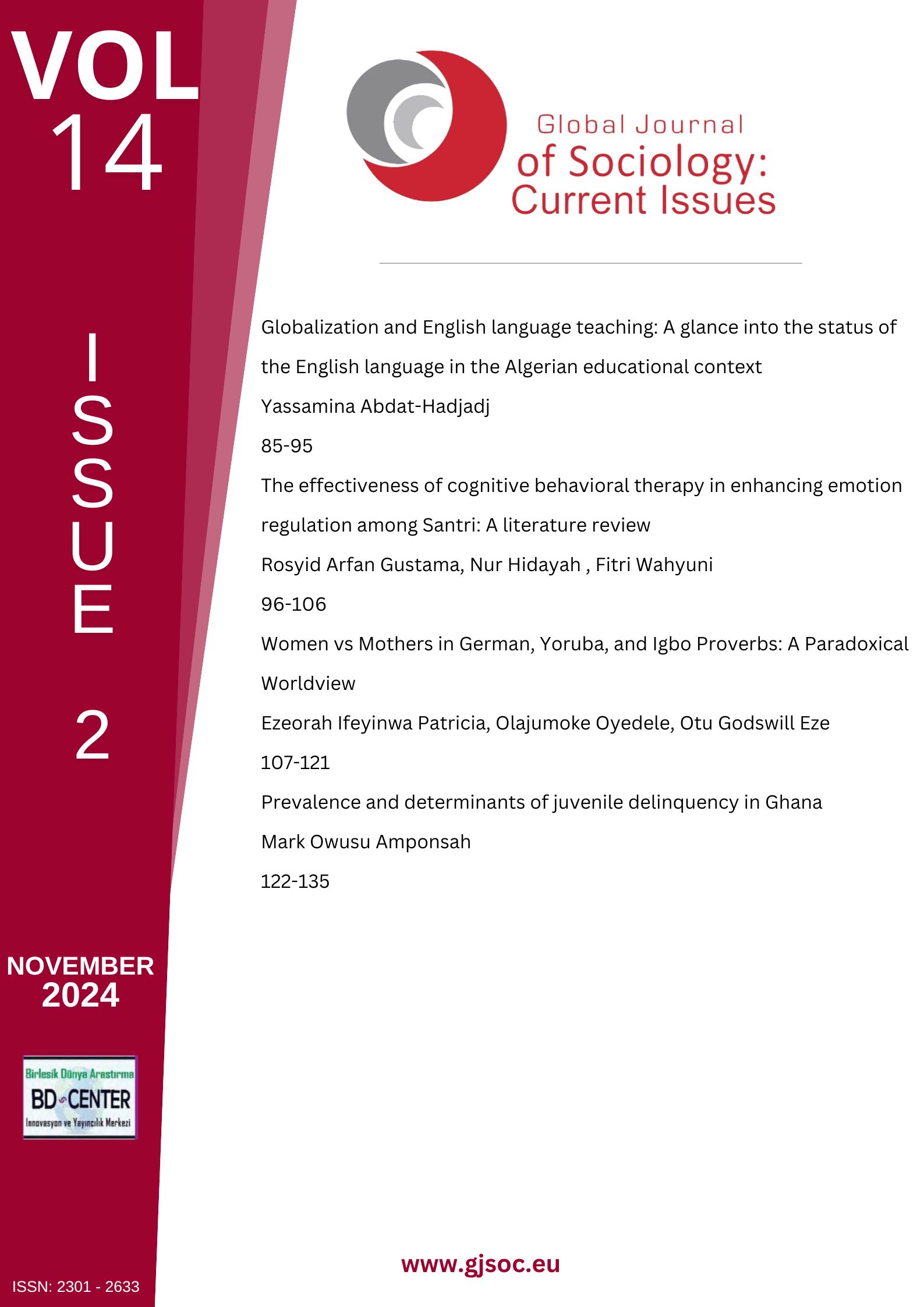Prevalence and determinants of juvenile delinquency in Ghana
Main Article Content
Abstract
Research in developed economies has largely attributed juvenile delinquency to social and biological factors. However, studies on this issue remain limited in developing countries such as Ghana. This study examines the prevalence of juvenile delinquency and its contributing factors among adolescents. A descriptive cross-sectional survey was conducted using a structured questionnaire administered to 310 randomly selected junior high school students in the Ashaiman Municipality, an area known for high community violence. Descriptive statistics were employed for data analysis. Findings indicate that juvenile delinquency is not highly prevalent among participants. However, factors such as homelessness, neglect, abuse, poor parenting, peer pressure, and traditional and social media influence contribute to delinquent behavior. The study highlights differences in perception based on demographic variables and underscores the role of effective parenting and community interventions in addressing adolescent delinquency. Ethical considerations, including informed consent and confidentiality, were strictly adhered to. The findings provide insights for educators, policymakers, and social workers to develop targeted interventions for mitigating juvenile delinquency in Ghana. Pedagogical and policy implications are discussed, along with recommendations for future research.
Keywords: Child development; criminal behavior; situational crime and prevalence
Downloads
Article Details
- Authors retain copyright and grant the journal right of first publication with the work simultaneously licensed under a Creative Commons Attribution License that allows others to share the work with an acknowledgement of the work's authorship and initial publication in this journal.
- Authors are able to enter into separate, additional contractual arrangements for the non-exclusive distribution of the journal's published version of the work (e.g., post it to an institutional repository or publish it in a book), with an acknowledgement of its initial publication in this journal.
- Authors are permitted and encouraged to post their work online (e.g., in institutional repositories or on their website) prior to and during the submission process, as it can lead to productive exchanges, as well as earlier and greater citation of published work (See The Effect of Open Access).
